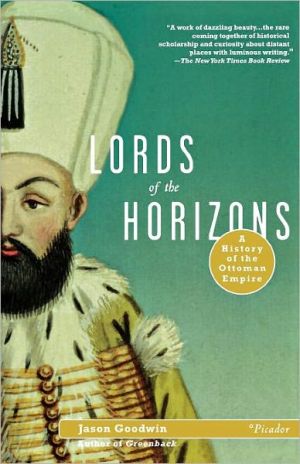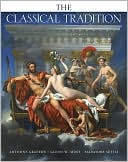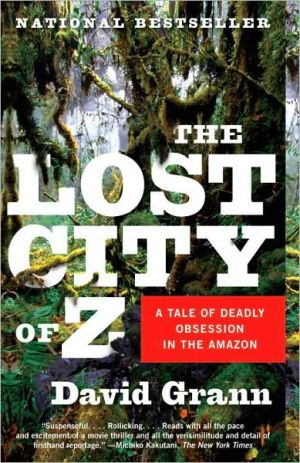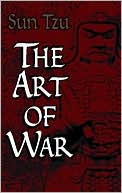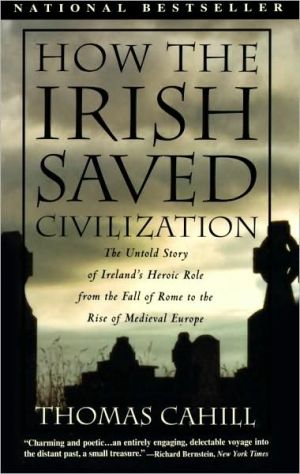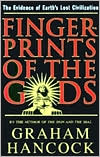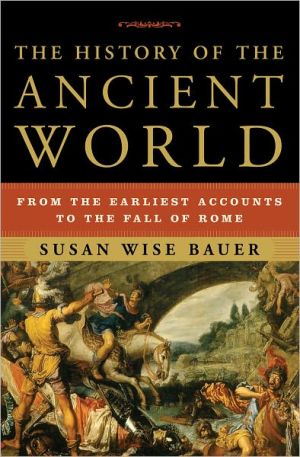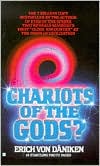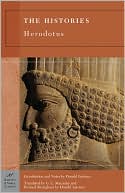Lords of the Horizons: A History of the Ottoman Empire
Lords of the Horizons tells the story of a people whose name does not describe a place, whose language nobody speaks. Ottoman ceremony was Byzantine, its wealth Egyptian, its dignity Persian; for six hundred years, the Ottoman Empire swelled and declined. Islamic, martial, civilized, and tolerant, it advanced in three centuries from the dusty foothills of Anatolia to rule on the Danube and the Nile; at its height, Indian rajahs and the kings of France beseeched the empire's aid. In its last...
Search in google:
For six hundred years, the Ottoman Empire swelled and declined. Islamic, martial, civilized, and tolerant, it advanced in three centuries from the dusty foothills of Anatolia to rule on the Danube and the Nile; at its height, Indian rajahs and the kings of France beseeched the empire's aid. In its last three hundred years the empire seemed ready to collapse, a prodigy of survival and decay. In this dazzling evocation of the empire's power, Jason Goodwin explores how the Ottomans rose and how, against all odds, they lingered on. In doing so, he also offers a long look back to the origins of problems that plague present-day Kosovars and Serbs. Times (London) A fascinating read...Jason Goodwin balances the sweep of great events with a host of revealing details.
Map of the Ottoman EmpireProloguePt. ICurves and Arabesques1Origins32The Balkans123Thunderbolt224The Siege295The Centre446The Palace507War658Suleyman the Magnificent799Order9010Cities11011The Sea12112Rhythms130Pt. IIThe Turkish Time13The Turkish Time14914Stalemate15815The Cage16416The Spiral17317The Empire185Pt. IIIHoards18Hoards20919Koprulu and Vienna22120Austria and Russia23721Ayan24522Shamming25623Borderlands26924The Auspicious Event28925The Bankrupt301Epilogue322Ottoman Sultans327An Ottoman Chronology329Glossary334Bibliography337Acknowledgements342Index343
\ From Barnes & NobleThe Barnes & Noble Review\ In its heyday, the Ottoman Empire reached from Iran to Turkey, encompassing a multitude of ethnicities and more than three dozen nations. Islamic, though many of its subjects were not Muslim, Turkish, though it was mostly Balkan Slavs who served as shock troops, the Ottoman Empire was Byzantine in ceremony, Persian in dignity, Egyptian in wealth, and Arabic in letters. The long survival of the empire, Jason Goodwin claims in Lords of the Horizons, his beautifully written account of the period, was due to tolerance and flexibility and to practicing meritocracy instead of forcing cultural assimilation. \ Yet for all that tolerance, the Ottoman Empire was run by the army. Every road had a military destination. The common language was that of the gert and bow. Horses were revered, sometimes over men themselves. Peace divided men: They lost sight of a common goal, stirring trouble at home. Where there was war, the Ottomans excelled; where there were the trappings of battle, the Ottomans proved superior.\ Power came from motion. With an army bivouacked for five months of the year, tents were a significant part of life. At the last siege of Vienna, a canvas city was erected next to the capital that was not only larger than Vienna itself, but better ordered. "Western camps were Babels of disorder, drunkenness and debauchery. The Ottoman camp was a tea party disturbed by nothing louder than the sound of a mallet on a tent peg."\ Tea parties aside, battles fought to expand the Empire were anything but demure. Goodwin captures 15th-century battles with a contemporary zest.Hisdescriptions of war evoke the balletic montages of a film director like John Woo. "By mid-afternoon the stricken ships had collected a positive infestation of Turkish vessels, clinging to their sides with grappling irons and hooks, aiming to carry them by assault or fire.... Baltoghlu himself ran his ship into the prow of the big transport and around her the fighting seemed fiercest, wave after wave of boarders steadily repulsed, the Byzantine weapon of Greek fire — the equivalent of napalm — used to deadly effect, the Turkish galleys forever entangling their oars, or losing them to missiles dropped from overhead by the much higher Christian vessels."\ The sword united the Ottoman empire; the pen divided it. Though the empire was one still based on meritocracy, the agrarians began losing to a world which was becoming increasingly busy and bossy. The martial strengths of the Empire became useless in the face of burgeoning industrialism in Western Europe. A shamming took place, one impossible to fathom in a martial society. Although thousands came to work in the palace every day, only about 20 people performed significant tasks.\ Early in the book, Goodwin describes Sultan Suleyman in his twilight years as "a sort of metaphor of empire, rotting and majestic, fat, made-up, and suffering from an ulcerous leg." The cancer was nationalism. Inflation and a price revolution made for uncertain futures, causing nations to huddle together for security. Tolerance was usurped by factionalism, petty rivalries, and disloyalty. Quarantine systems were soon fixed around the Empire, making a mockery of the policy of acceptance which had enabled it to flourish for so many years.\ Lords of the Horisons offers a trove of delightful images as it provides a popular history. Only a scholar with a somewhat odd yet poetic sensibility would conclude a study of the Ottoman Empire with the detailed history of Turkish dogs: how they were accepted, cherished, and protected, how they suffered, and why in the end they left, never to return.\ —Deirdre Holland\ \ \ \ \ \ Times (London)A fascinating read...Jason Goodwin balances the sweep of great events with a host of revealing details.\ \ \ Fouad Ajami...[An] arresting evocation of the Ottoman centuries....a work of dazzling beauty....[This is] a hybrid book — part travel chronicle, part popular history and a meditation on a vanished world....Goodwin has not quite come to praise the dead. He has, though, stripped that Ottoman past of its "otherness," the alienness that has been its lot in this age of unyielding nationalism. —The New York Times Book Review\ \ \ \ \ Andrew WhitesideMr. Goodwin's efficient rendering of Ottoman history may be read with pleasure and profit by everyone.\ — The Wall Street Journal\ \ \ \ \ Publishers WeeklyIn this elegant work, British author Goodwin On Foot to the Golden Horn combines deft historical summary with the buoyant prose and idiosyncratic focus of the best travel writing. The combination enables him to take the full measure of a realm riddled with paradox. The Ottoman Empire was a Turkish empire most of whose shock troops were Balkan Slavs; a bellicose state that expanded by war, it often governed its conquests with a light hand--a necessary approach given the many cultures and nationalities that fell under Ottoman rule. Ottoman society at its best was civilized and tolerant, observes Goodwin. The Jews expelled from Spain in 1492 were warmly received in Salonika, Constantinople, Belgrade and Sofia. While war and superstition ruled Christian Europe, the Islamic Ottoman Empire thrived and glittered with mathematical, architectural and artistic accomplishment. Goodwin is marvelous at describing how, for three hundred years before its final collapse after WWI, the empire survived even though it was perpetually on the verge of collapse. He attributes the calcified empire's decline not only to corruption and the rise of France and Russia but to the Turks' prideful ignorance of the West, a vanity that eventually deprived the empire of the fruits of modernity. As good as Goodwin is at blending political, cultural and military affairs, his work is distinguished by stylish writing and a sharp eye for just the right anecdote. His epilogue, which is built around the fate of the empire's famous stray dogs, is at once amusing and strangely, beautifully moving.\ \ \ \ \ Library JournalBritish travel writer Goodwin, whose previous books include A Time for Tea and On Foot to the Golden Horn, explores the long and tumultuous history of the Ottoman Empire, examining the political upheavals and military actions that continually engaged the empire. Goodwin also reveals many fascinating details of daily life: e.g., common people would insert waste paper into the cracks of walls, believing the paper would protect their feet on the fiery path to heaven. The most absorbing chapter concerns the defeat of the Ottomans in Vienna in 1683, presenting in lively style the events leading up to that crucial battle. -- Norman Malwitz, Queens Borough P.L., NY\ \ \ \ \ Colin WaltersTurned up at just the right time to be helpful for anyone needing a readable briefing on the background to the present war.\ — The Washington Times\ \ \ \ \ The Times (London)A fascinating read...Jason Goodwin balances the sweep of great events with a host of revealing details.\ \ \ \ \ The EconomistMr. Goodwin has written a rich and entertaining book but he has occasionally allowed his affection for the Ottomans to get the better of his historical judgement. "So beguilingly gentle was the way they tickled their vassal to halter,"he writes, for example, "so otherworldly did their success appear, that Luther himself wondered piously aloud whether they should be opposed at all." In fact, Luther's opposition to a crusade against the Turks (whose advance towards the middle Danube appeared to the terrified Europeans as anything but otherworldly), was predicated on a combination of pacific theology and hatred for the Papacy. He was no Ottoman apologist. "The spirit of Antichrist is the Pope," he once declared; "his flesh is the Turk."\ \ \ \ \ Fouad Ajami...[An] arresting evocation of the Ottoman centuries....a work of dazzling beauty....[This is] a hybrid book -- part travel chronicle, part popular history and a meditation on a vanished world....Goodwin has not quite come to praise the dead. He has, though, stripped that Ottoman past of its "otherness," the alienness that has been its lot in this age of unyielding nationalism.\ — The New York Times Book Review\ \ \ \ \ Kirkus ReviewsA delightfully picaresque history, brimming with memorable anecdotes and outrageous personalities. English travel writer Goodwin (A Cup of Tea: Travels Through China and India in Search of Tea) guides us on a highly impressionistic journey. We begin in the foothills of Turkey, where the Ottoman Turks revered the horse and reveled in making war. (They also helped to destroy the Christian crusaders of the 14th century.) The Ottomans were Sunni Muslims, relatively tolerant of religious diversity. In 1453, under Sultan Mehmet, they seized Constantinople, making it their capital. Goodwin writes brilliantly about the siege of that Byzantine city, describing its complex defensive fortifications and how Mehmet breached them with a revolutionary weapon, the cannon. Under Suleyman the Magnificent, Ottoman power reached its zenith. Suleyman's army overran Belgrade in 1521 and later assaulted Vienna. Finally, the European powers united to stop the "infidel" Ottoman onslaught. In 1571, the Ottomans suffered their first major defeat at the Battle of Lepanto. Nevertheless, they consolidated their power in the Balkans, Egypt, Persia, Russia, and all over Central Asia. Goodwin argues convincingly that the key to Ottoman success, besides an obvious skill at war, was their open-mindedness regarding cultures and institutions: The Ottoman umbrella made room for Spanish Jews, Orthodox Greeks, Venetian merchants, Albanian tribesmen, Arab bedouins, and others. With the coming of the industrial revolution in Europe, however, the Ottomans fell behind. Palace intrigues, factional rivalries, military disloyalty, and nationalist rebellions in Greece and Egypt combined to sap the empire of itsstrength. Yet it survived, miraculously, into the 20th century, like some crazy old aunt locked in the attic. Throughout, Goodwin relishes the exotic, the bizarre, the picturesque. In explaining the decline of Ottoman military virtue, he cites Sultan Ibrahim, who overindulged in drink and the harem, where he "rode his girls like horses through rooms lined in fur." An elegantly written, thoroughly entertaining work of popular history. \ \ \ \ \ From the Publisher"A fascinating read .... [Goodwin] has a knack of catching the prevailing mood of the Empire during all its phases, which makes the book a perfect companion for anyone who visits Turkey." (The Times (London))\ \
